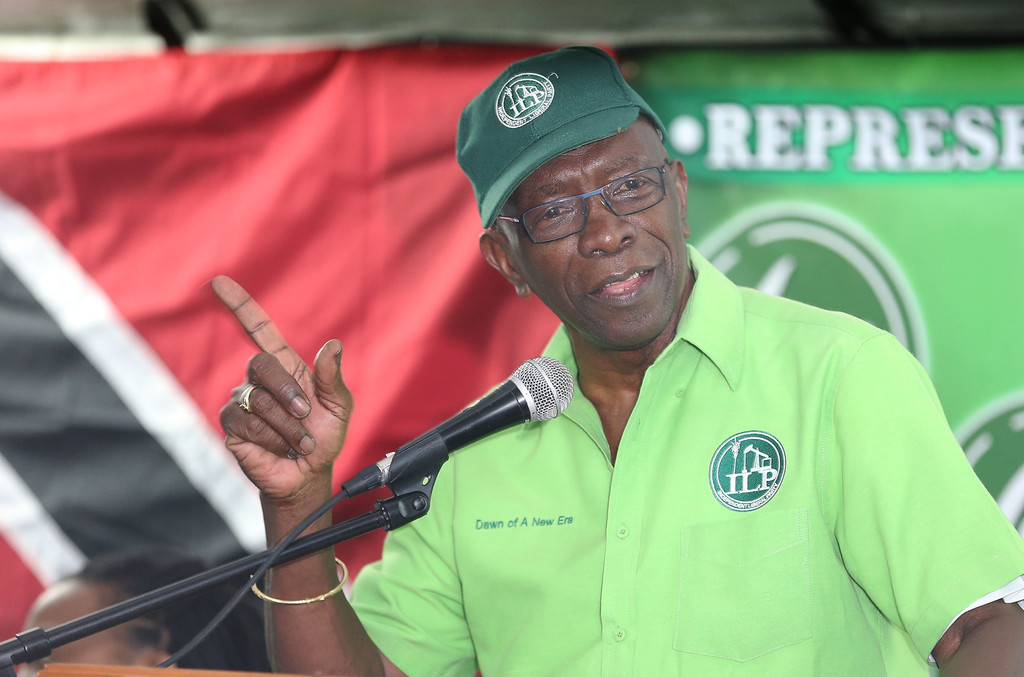A couple of decades ago, I set off from the Guardian’s offices and walked a few blocks to Jack Warner’s offices higher up St Vincent Street. I was mildly intimidated by the assignment, which was to provide images for a business story by my late friend and colleague, Terry Joseph. I was insulated from much of the impact of my subject’s considerable fame through my lifelong disinterest in sports generally and football in particular.
It was striking to look at the videos featuring Mr Warner which have become part of popular culture recently. I pulled up some scans I’d done from that shoot for my archives, and it was almost surreal how similar his office and desk setup are now to the one I encountered. The technology has marched on and newer gear surrounds him now, but he affects the same sense of a man surrounded by work who confidently keeps it under control with an iron grip and steely will.
In 2006, about 15 years after I’d had my first and only encounter with him, Warner was the vice-president of FIFA, president of Concacaf, a special adviser to the TTFF, a successful businessman and a key political figure as the deputy political leader of the UNC. Today, he is, according to the United States government, a wanted man with an indictment awaiting him should he ever set foot on their soil and a red listed person of interest at Interpol.
In the face of all this deadly seriousness then, it’s a little hard to understand how everything became so bitterly funny. Some of it has to do with Warner’s presence and uniquely Trinidadian approach to things. Whatever else he has been in his life, he offers an intense focus on whoever he happens to be dealing with, as I discovered on that assignment.
Unhappy with the determinedly sedate executive spaces he offered for the photography, I suggested that we head outside to get the plexiglas half-dome of the Concacaf logo and the sharp geometries of the building into the frame. To do this, I had to lie down in the drain just off to his left and he took direction well.
As I walked into his office afterward to collect the remainder of my gear, he reached into a desk drawer and took out a Fifa tie and pin and offered it to me, complimenting me on my approach to my work. For many years afterward, that tie remained a part of my cycle of executive nooses during that phase of my life and a pleasant reminder of my encounter with a great man.
Of course, I didn’t really know jack about Mr Warner, just his reputation and the evidence of my encounter with him. Now, Warner occupies a unique space in the global discussion about Fifa corruption, one that apparently defies even the best comedians. When John Oliver decided to take on Jack Warner on his home turf, his clever, almost reverential assault on the former Fifa honcho never seemed to pick up steam.
At least part of that stemmed from Oliver’s unwillingness to tease the nation that’s tacitly supported Jack Warner for decades, but a large part of it has to do with Warner’s Teflon imperviousness to being the butt of a joke.
John Oliver’s made for global consumption segment on TV6, The Mittens of Disapproval are On, withered in the face of Jack Warner’s home-hewn response, a tour de force of hilarity, which pitted the embattled former executive against his own considerable speech impediment, an incomprehensible script and the swelling roar of music stolen from upcoming composer Greg Dombrowski.
Like one of those truly strange onions that crop up from time to time, Jack Warner resists ready peeling, you get the skin off, think you’re into the meat of the thing, only to find another mutant skin under it. It’s easy now to get all hot and bothered about shame and embarrassment and that nebulous place, “the international stage,” but T&T failed the most basic of questions that an investigator might ask about all of this.
What did we know? How long did we know it? And what did we do about it? The answers, of course, are all of it, all along and nothing. Because even after all these accusations, I really didn’t know Jack and chances are, neither did you.

